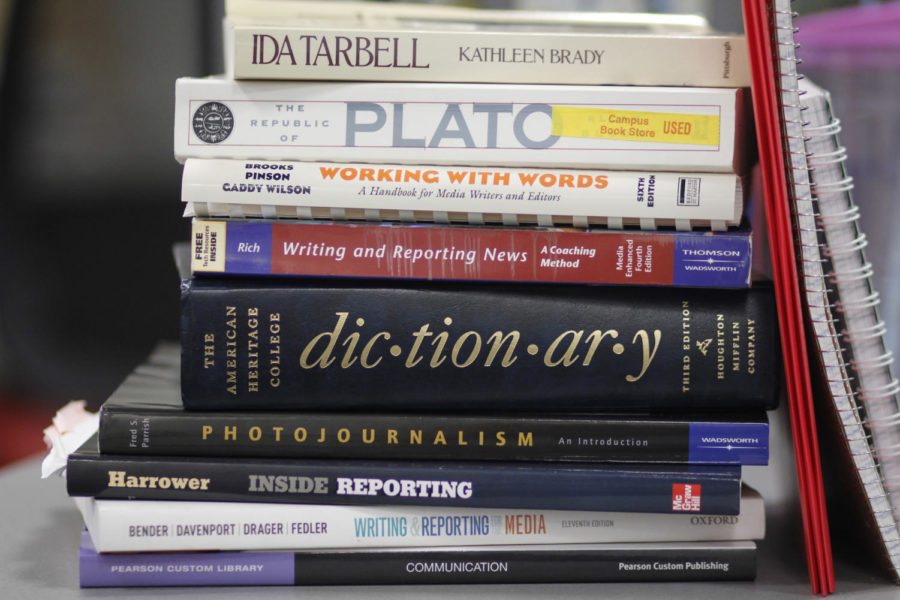Tuesday morning, I read a piece by the Wall Street Journal that discussed the “decline” of people studying liberal arts and humanities in universities. Given the state of the world economy and the dearth of job opportunities for people educated in the humanities, it is not surprising that this phenomenon is occurring.
But at what cost? A quote from the opening paragraph explains that:
“Academia today is dominated by the utilitarian mindset that values an education strictly on its monetary potential. We measure the success of a degree with the same tools we analyze stocks and assets: the higher the return on investment, the better. While this is not necessarily an objective evil, we must understand what we lose in the process: knowledge for the sake of human fulfillment and flourishing.”
Most college campuses are filled with both STEM and humanities apologists who claim the knowledge they possess is far superior to the other. Whereas philosophers and literary critics grapple with ideas, engineers, scientists and mathematicians seek an idealized world of quantification.
No side is better than the other. Without the advancement of science and technology, many things we hold dear would not be possible. I consistently view the feats in STEM subjects as among the most important of humanity.
However, when looking at the feats of humanity, we must also consider the constituting elements. Why is it important to investigate these matters? What moved their disciples to study them?
These are deeply philosophical, human questions. With intellectual guidance in these inquiries, one can find not merely where to search, but how to search.
During the infancy of our species, we developed complex ideas regarding the world and reality. Although many of these ideas are dismissed in light of our current knowledge, it does not mean they are worthless or purely classic.
Albert Einstein once wrote, “So many people today—and even professional scientists—seem to me like somebody who has seen thousands of trees but has never seen a forest.”
Einstein states that we notice things but, in reality, we should be more concerned with how we understand them. Think of why we travel. If we sightsee, we generally attach certain aesthetic or historical significance to the marvels of mankind or nature. If we read, we pursue understanding directly through an account or story.
Our modern societies have developed off the backs of classic thinkers. Just because we live in a more technologically advanced world, this does not mean we must forgo learning other human disciplines.
Not everything about education is based on “monetary potential.” Certainly, one should have a plan of action with their major, but this applies to all study areas, not just the humanities.
In practice, my educational experience in the humanities has been nothing short of amazing. Consistently, I am challenged by my professors to be unique in my thought, not robotic. Such is the point of studying the humanities.
This is not to say that one should be deterred from STEM if their passion lies in it. However, I know many STEM students who solely study it for economic purposes. For obvious reasons, spending money and time on something that doesn’t interest you is a bad recipe for long-term success.
Why be a mere cog in the machine if you do not enjoy it? Universities need passionate people in every subject who can share knowledge that creates an academic community of learners, not merely infantry for the workforce.
This is what is possible if we study the humanities. Every discipline can benefit from knowledge that these subjects generate. In my view, the humanities create a vision from which STEM can base itself.
Without a focus on the humanities, in addition to STEM, education becomes a one-sided endeavor.









Jake | Sep 27, 2023 at 9:08 am
It sure is refreshing to have progressive ideas appearing in a regular column. Last academic year, it was concerning how much imbalance there was in the pages of ISD opinion columns. Now, however, instead of Right-wing propagandists and a Republican US Congressional representative being given full reign, it seems there is a lack of balance again. Might there be an opportunity for a point-counterpoint with a staff writer who is a little more on the conservative side of things? This could set a good example of respectful discourse and, to the point of this article, help readers better grasp the spectrum of the human experience.
Caleb Weingarten | Sep 28, 2023 at 3:50 pm
Hi Jake,
Thank you for your comment! I wouldn’t say that there is an imbalance. As the editor of the section, I have been calling for all opinions. It is up to the community to participate! Also, my position in this article has little to do with right vs. left. But if you are interested in writing or know anyone who is, please let me know!